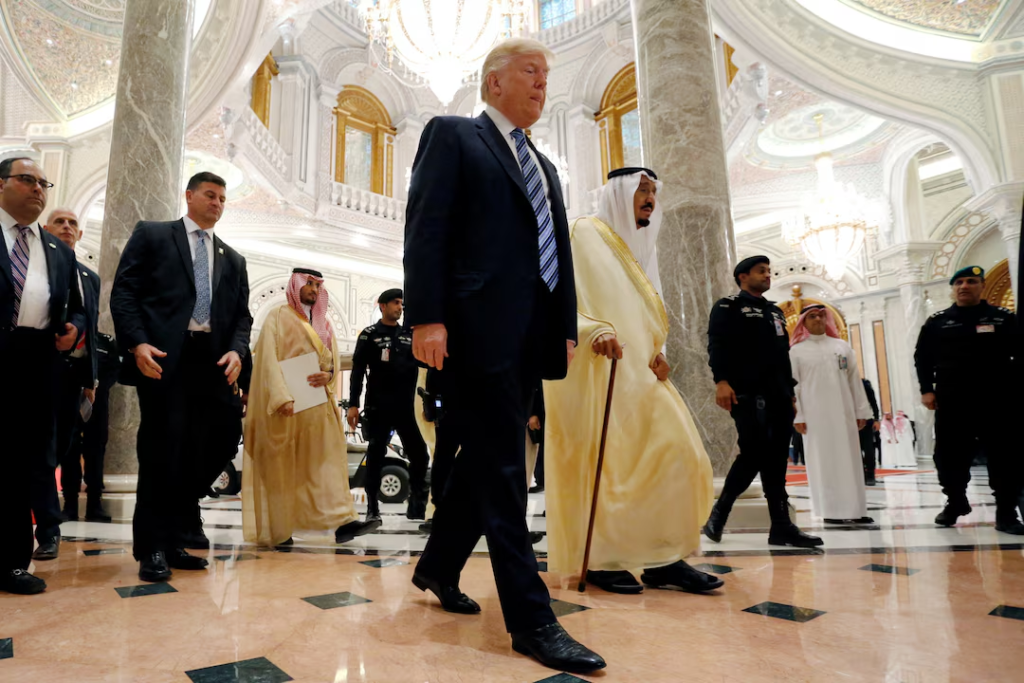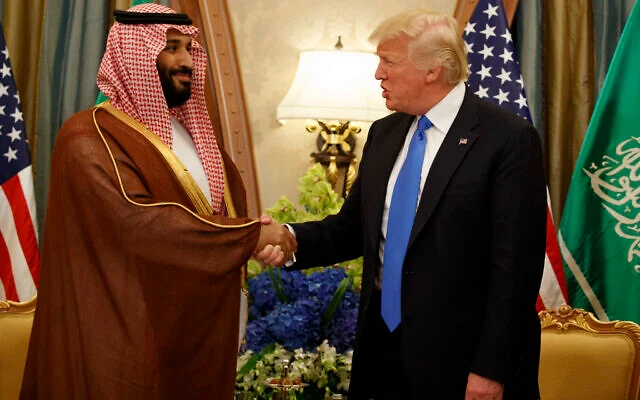Introduction
The prospects of Saudi Arabia normalizing relations with Israel remain uncertain, even as former U.S. President Donald Trump proposes a $1 trillion investment bonanza aimed at reshaping Middle East alliances. While other Gulf states have joined the Abraham Accords, Riyadh continues to tread cautiously. In this blog, we examine the top five reasons why Saudi-Israel ties remain out of reach and how Trump’s grand vision may struggle against deep-rooted geopolitical realities.





1. The Palestinian Question Still Dominates Saudi Policy
Unlike the UAE and Bahrain, Saudi Arabia remains committed—at least publicly—to the Arab Peace Initiative, which demands a two-state solution before normalization. Crown Prince Mohammed bin Salman (MBS) has shown openness in private meetings, but any public pivot without concessions for Palestinians risks backlash from both domestic and regional audiences.
2. Iran Is Still a Regional Wildcard
Saudi Arabia’s recent detente with Iran—brokered by China—complicates normalization with Israel. Any overt alliance with Israel, Iran’s archenemy, could reignite tensions. Riyadh is pursuing a delicate balancing act, trying to ease regional frictions while keeping U.S. and Israeli ties warm behind the scenes.
3. Trump’s $1 Trillion Pitch Faces Skepticism
Reports suggest Trump is lobbying Saudi leadership to sign a normalization deal in exchange for U.S. defense guarantees and massive economic incentives totaling $1 trillion. While MBS is pragmatic, there is deep skepticism over whether such promises would survive the turbulence of U.S. politics—especially if Trump doesn’t return to office in 2025.
4. Internal Saudi Reforms Take Priority
Vision 2030 remains MBS’s central project. Social and economic reforms, like reducing oil dependency and increasing tourism, dominate his agenda. Normalizing ties with Israel could distract from or even endanger domestic reforms by triggering conservative opposition, especially from religious leaders still influential in the kingdom.
5. Public Opinion in the Arab World Remains Wary
Arab public opinion, especially within Saudi Arabia, continues to oppose normalization with Israel. A 2024 Arab Barometer poll showed strong disapproval across the region. MBS has made bold moves before, but open normalization could spark regional protests and damage the kingdom’s leadership status in the Islamic world.
Conclusion
Trump’s vision of a grand Middle East realignment—with Saudi Arabia normalizing ties with Israel as the crown jewel—remains tantalizing but distant. Geopolitical complexity, religious sentiment, and cautious Saudi diplomacy all serve as brakes on rapid normalization. For now, quiet backchannel cooperation may continue, but a public agreement is far from guaranteed.
Related Reading: How Abraham Accords Reshaped Middle East Diplomacy
Want more insights into Middle East politics and U.S. foreign policy? Subscribe to our newsletter and stay informed on the latest developments.